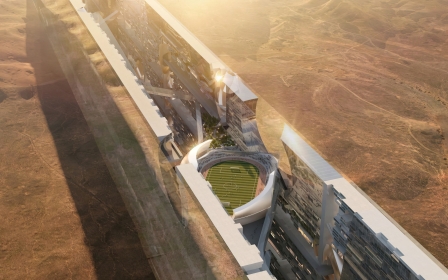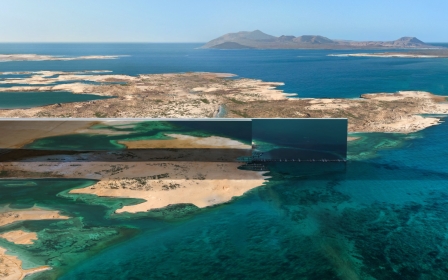Saudi Arabia: High-net-worth Muslims eye luxury homes in holy cities, report finds

Saudi Arabia's drive to attract expats and boost its real estate market could be turbocharged by a largely untapped demographic in the global south: rich Muslims eyeing homes in Islam's two holiest cities.
According to a report published by real estate consultancy firm Knight Frank, despite western media focusing much of its attention on the kingdom's drive to boost luxury beach resort tourism and legalise alcohol, demand for glitzy real estate in Saudi Arabia has surged among Muslim high-net-worth individuals (HNWI).
"Seventy nine percent of our Muslim HNWI respondents would like to make their residential property purchase in one of the holy cities within the next five years," Knight Frank said, adding that the average budget for potential buyers in Mecca is $5.5m while buyers in Medina have an average budget of $4.6m.
Knight Frank said that Saudi Arabia is sitting on an untapped luxury real estate market because average prices for villas in the two cities are around $600,000, and that the market could absorb “substantially higher levels of luxury housing”.
"The appetite from international HNYWI for luxury homes in the Holy Cities shines a light on a new area of opportunity for developers and investors," the authors said.
Stay informed with MEE's newsletters
Sign up to get the latest alerts, insights and analysis, starting with Turkey Unpacked
The report polled 506 HNWI, with 63 percent of respondents coming from Indonesia, Malaysia and Turkey. Other countries included Algeria, Iraq, Iran, Pakistan, India, Malaysia, and Singapore.
Among the respondents, 60 percent said their main motive for buying a home in Saudi Arabia was for investment purposes, while 45 percent cited cultural and religious reasons.
Most Indonesians, Pakistanis and Turks preferred the holy city of Mecca, while the majority of Algerians preferred the Saudi capital of Riyadh. The small number of Iranian respondents are eyeing homes in the Red Sea coastal city of Jeddah.
Muslim buyers from Indonesia, India and Pakistan were the most interested in making a purchase.
Brand names
Earlier this year, Saudi Arabia unveiled a new premium residency visa that underlines how it is trying to capture the wealthiest buyers. It offers residency to buyers of real estate worth at least $1.06m, making it one of the priciest in the world.
A big chunk of Muslims seeking luxury homes in Islam’s two holiest cities would also like to see brand-name residencies of the kind that have mushroomed in the UAE.
Developers in Dubai have cashed in catering to wealthy buyers who want luxury real estate tied to a brand name, like the Four Seasons, Bulgari, and Armani.
Almost a third of wealthy Muslim buyers eyeing homes in Mecca want real estate with brand names like Versace, Ritz Carlton and Bulgari.
"We are already seeing significant investment and expansion branded residential offerings around the region, with Saudi Arabia likely to be one of the most exciting new residential markets," the report said.
Saudi Arabia has experienced a housing boom under Crown Prince Mohammed bin Salman, who has set a target of 70 percent home ownership among Saudis as part of his plans to diversify and modernise the oil-rich kingdom's economy.
The public investment fund, which is chaired by the crown prince, has been one of the main drivers of this diversification by flooding the market with extra liquidity so banks issue more loans.
The effort is reshaping Saudi Arabia’s housing market, with mortgage financing now representing 23.5 percent of Saudi banks’ total credit allocation in 2023, compared to just 12.8 percent in 2019.
Home prices in Riyadh have shot up to record levels, with apartments and villas now 26 percent and 21 percent, respectively, above their 2016 peaks, according to Knight Frank. That has led some to warn about a real estate bubble in the desert kingdom, with home sales now slumping.
Residential transactions, which made up roughly 59 percent of all real estate deals by total value, fell 16 percent to just under 150,000 sales between January and November 2023, the report noted.
Middle East Eye delivers independent and unrivalled coverage and analysis of the Middle East, North Africa and beyond. To learn more about republishing this content and the associated fees, please fill out this form. More about MEE can be found here.





